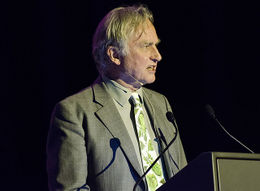Difference between revisions of "Essay: Christianity and its margin of victory over atheism"
Conservative (Talk | contribs) (→Christianity vs. Atheism: Dissemination of ideas) |
Conservative (Talk | contribs) (→Growth of Christianity graph) |
||
| Line 58: | Line 58: | ||
In the 20th century and in the 21st century, large masses of people have abandoned atheism in [[Communism|communist]] and formerly communist countries (see: [[Atheism and its retention rate in individuals#Abandonment of atheism in atheistic communist countries|Abandonment of atheism in atheistic communist countries]]). | In the 20th century and in the 21st century, large masses of people have abandoned atheism in [[Communism|communist]] and formerly communist countries (see: [[Atheism and its retention rate in individuals#Abandonment of atheism in atheistic communist countries|Abandonment of atheism in atheistic communist countries]]). | ||
| − | + | == Growth of Christianity graph == | |
[[File:Growth of Christianity.png|thumbnail|center|400px|[[Growth of Christianity]] graph.<ref>[https://www.researchgate.net/figure/shows-the-growth-of-the-total-number-of-Christians-worldwide-25-At-first-glance-it-may_fig5_301560058 Total Christian population graph]</ref>]] | [[File:Growth of Christianity.png|thumbnail|center|400px|[[Growth of Christianity]] graph.<ref>[https://www.researchgate.net/figure/shows-the-growth-of-the-total-number-of-Christians-worldwide-25-At-first-glance-it-may_fig5_301560058 Total Christian population graph]</ref>]] | ||
Revision as of 18:15, April 24, 2024


The website Sporting Charts defines margin of victory in the sporting world:
| “ | A statistic based on the difference between the number of points scored by the winning team and the number of points scored by the losing team. Margin of victory is used to quickly determine how significant the victory was by a particular team. A small margin of victory generally denotes a close, evenly matched game, while a large margin of victory denotes a blowout by one team.[2] | ” |
The Chinese general and strategist Sun Tzu said, "Invincibility lies in the defense; the possibility of victory in the attack."
Contents
- 1 Margin of ideological victory
- 2 Margin of ideological defeat
- 3 Validity of Christianity. Spuriousness of atheism
- 4 Growth of Christianity graph
- 5 Christianity vs. Atheism: Dissemination of ideas
- 5.1 Christianity vs. atheism: Number of adherents
- 5.2 Desecularization of the world and global resurgence of religion
- 5.3 Tables on the decline/growth of atheism/Christianity/other religions, by year
- 5.4 Christian internet evangelism vs. atheism internet evangelism
- 5.5 Major Christian internet evangelism ministries reach over 2 billion people via the internet
- 6 Future of the atheist population
- 7 Growing evidence that atheists are weary and lacking in confidence
- 8 The cherry atop the glorious sundae of Christian victory over Western atheism
- 9 See also
- 10 Notes
Margin of ideological victory
So in ideological battles/wars, the greater the strength/number of defenses its adherents provide (some arguments are stronger than others) and the less the reasonableness/number of objections that opponents can raise (some objections are stronger than others); and the greater and more ways its adherents can show that opposing views are in error without their proponents providing satisfactory counter responses, the greater the margin of ideological victory is.
Margin of ideological defeat
The margin of ideological defeat is the number of ideological points scored by opposing ideologies and the number of ideological points scored by the losing ideology.
Validity of Christianity. Spuriousness of atheism

Validity of Christianity
Spuriousness of atheism
Atheists admit defeat
Atheism, disbelief and "sub-disbeliefs"

Although there is good evidence suggesting atheists do not truly exists and they actively suppress their belief and knowledge of God and enigmatically engage in self-deception (see: Denials that atheists exist), hypothetically atheism is a "mega-disbelief" that is made up and held together by various "sub-disbeliefs" and/or "sub-beliefs" such as a belief in philosophical naturalism (see also: Atheist worldview and Atheism and beliefs).[4]
If at any one time one of these sub-disbeliefs and/or sub-beliefs is effectively challenged, an atheist could hypothetically remain in his disbelief (Although in a weaker form of disbelief). However, when a sufficient number of these sub-disbeliefs and/or sub-beliefs are countered, an atheists will really start to question their disbelief. This conceptual framework is similar to the concept of graceful degradation used in network theory where several nodes in a network are destroyed, but the network as a whole continues to function albeit in a more limited fashion (until enough nodes are no longer functioning and the system experiences a total loss of function).[5]
Given the myriad of strong evidences for the existence of God and the lack of evidence and sound reasoning for atheism/agnosticism, it is not unusual for atheists/agnostics to report that they waver in their purported disbelief/unbelief (see: Atheists doubting the validity of atheism).
In 2012, a Georgetown University study was published indicating that in the United States only about 30 percent of those who grow up in an atheist household remain atheists as adults.[6] According to Dr. Mark Gray, "of those raised as atheists, 30% are now affiliated with a Protestant denomination, 10% are Catholic, 2% are Jewish, 1% are Mormon, and 1% are Pagan."[7] See also: Atheism and its retention rate in individuals and Atheism and children
In the 20th century and in the 21st century, large masses of people have abandoned atheism in communist and formerly communist countries (see: Abandonment of atheism in atheistic communist countries).
Growth of Christianity graph
Christianity vs. Atheism: Dissemination of ideas
Seth Godin, an American author, entrepreneur, marketer, and public speaker, said "Ideas that spread win."[9]
As far as Christian apologetics, great efforts have been made as far as compiling and refining arguments for Christianity and against opposing ideas. Accordingly, it is important that these ideas are spread as widely as possible.
As can be seen below, there are trends which point to atheism having a lower amount of distribution as far as the dissemination of its ideology and theism having an increase in terms of the distribution of its ideas.
Christianity vs. atheism: Number of adherents
Desecularization of the world and global resurgence of religion

See also: Desecularization and Global atheism statistics
On July 24, 2013, CNS News reported:
| “ | Atheism is in decline worldwide, with the number of atheists falling from 4.5% of the world’s population in 1970 to 2.0% in 2010 and projected to drop to 1.8% by 2020, according to a new report by the Center for the Study of Global Christianity at Gordon-Conwell Theological Seminary in South Hamilton, Mass."[12] | ” |
In 2011, the American Spectator declared:
| “ | The report estimates about 80,000 new Christians every day, 79,000 new Muslims every day, and 300 fewer atheists every day. These atheists are presumably disproportionately represented in the West, while religion is thriving in the Global South, where charismatic Christianity is exploding."[13] | ” |
On December 23, 2012, Professor Eric Kaufmann who teaches at Birbeck College, University of London wrote:
| “ | I argue that 97% of the world's population growth is taking place in the developing world, where 95% of people are religious.
On the other hand, the secular West and East Asia has very low fertility and a rapidly aging population... In the coming decades, the developed world's demand for workers to pay its pensions and work in its service sector will soar alongside the booming supply of young people in the third world. Ergo, we can expect significant immigration to the secular West which will import religious revival on the back of ethnic change. In addition, those with religious beliefs tend to have higher birth rates than the secular population, with fundamentalists having far larger families. The epicentre of these trends will be in immigration gateway cities like New York (a third white), Amsterdam (half Dutch), Los Angeles (28% white), and London, 45% white British. [14] |
” |
Kaufmann told a secular audience in Australia: "The trends that are happening worldwide inevitably in an age of globalization are going to affect us."[15]
See also:
Tables on the decline/growth of atheism/Christianity/other religions, by year
See also: Global Christianity and Global atheism statistics
Data compiled by the Center for the Study of Global Christianity (CSGC) at Gordon-Conwell Theological Seminary (GCTS):
Given the information in the resources directly above, the Center for the Study of Global Christianity at Gordon-Conwell Theological Seminary, expects the global atheist population to shrink in its total number of individuals in 2017.
If CSGC is correct, then not only is the global market share for atheism going downward, but now the actual number of atheists in the world is going down as well. Specifically, CSGC is projecting that from the mid-point of 2016 to the midpoint of 2017, the total number of atheists in the world is going to go from 138,101,000 individuals to 137,041,000 individuals. That is a net loss of 60,000 atheists in the world during this period.[16]
Christian internet evangelism vs. atheism internet evangelism
- Internet evangelism: Christians vs. atheists
- Internet atheism has a small audience and an insignificant influence on the world
Internet outreach and the Matthew effect: Atheist websites vs. religious websites
See also: Internet outreach and the Matthew effect: Atheist websites vs. religious websites
Study.com defines the Matthew effect thusly, "The Matthew Effect is a term that describes the concept in society of accumulated advantage. It argues that people who start from a place of advantage, like intelligence, fame, wealth, or skill, will have the opportunity to accrue more of that advantage compared to others. The Matthew Effect is often thought of by the phrase, "the rich get richer, and the poor get poorer."[17] The Matthew effect's etymology can be traced to Gospel of Matthew which declares: "For to every one who has will more be given, and he will have abundance; but from him who has not, even what he has will be taken away." (Matthew 25:29, RSV).
Because the religious population is larger than the atheist/agnostic populations and raises more money for web marketing budgets than the atheist/agnostic populations, they greatly outperform atheist websites in terms of web traffic. In addition, Google tends to rank large websites with a lot of traffic higher at Google for various search terms - especially high volume searches. So large Christian websites with a lot of web traffic have a big competitive advantage over atheist websites. Furthermore, religious groups often have more evangelistic zeal and also have more international cooperation in terms of web outreach efforts.
As time has progressed the gap between the effectiveness of religious websites vs. atheist websites in terms of reaching larger audiences has widened and will most likely widen further. For example, Christian websites are greatly outperforming atheist websites in terms of their respective web outreaches (see: Internet evangelism: Christians vs. atheists).
For more information, please see: Internet outreach and the Matthew effect: Atheist websites vs. religious websites.
Growth of internet evangelism
See: Internet evangelism
Major Christian apologetics websites and their web traffic
See: Major Christian apologetics websites and their web traffic
Major Christian internet evangelism ministries reach over 2 billion people via the internet
The Christian internet evangelism organization Global Media Outreach indicated that as of September 2019 over 1,900,000,000 "gospel visits" have occured via their websites.[18] Global Media Outreach works with many Christians around the world (see: Global Christianity).
The Christian internet evangelism] organization Network211 indicates that as of September 2019, over 37,000,000 web visits have occured on their websites.[19] Network211 works with many Christians/churches throughout the world.
In 2022, the Billy Graham Evangelism Association announced:
| “ | Launched in 2012, Search for Jesus impacts website users with the truth of the Gospel and relies on a network of over 1,400 trained volunteers who interact with users and answer live questions. With a mission to reach those hurting and in need, Search for Jesus utilizes the accessibility of the internet to reach places otherwise closed to the Gospel.
Using these digital tools, more than 300 million people have indicated a decision for Christ and received follow-up through the internet ministry. To date, the PeaceWithGod.net websites have welcomed over 100 million online users. With messages in English, Spanish, Portuguese, Chinese, Arabic, American Sign Language, and Russian, Search for Jesus has been able to expand globally and cross language and accessibility barriers. “This is significant because we’re following Billy Graham’s legacy of spreading the Gospel across the globe using every opportunity we have. The average person spends nearly seven hours a day on the internet, so we want to meet these people where they are,” said Mark Appleton, director of internet evangelism for BGEA, in a press release. “Search for Jesus has given us the chance to spread the Gospel like never before.”[20] |
” |
The Christian Post states:
| “ | Online evangelism is producing real disciples for Christ, according to a recent study.
Over half of those who made a decision for Jesus over the Internet have subsequently shared their faith with others, Global Media Outreach's study reveals. Additionally, 34 percent read their Bibles daily and nearly half pray for at least 10 minutes a day... The study, called the Christian Growth Index, measured the responses of more than 100,000 people from around the world... Fifty-one percent of those surveyed said they shared their faith three times or more and 37 percent said they shared their faith at least once or twice. Global Media Outreach is a global ministry that presents the Gospel online through websites such as WhoisJesus-Really.com and GrowinginChrist.com. There are more than 5,500 trained online missionaries worldwide who respond to questions asked by seekers through emails.[21] |
” |
There are other significant Christian internet evangelism efforts as well. For example, the Billy Graham Association is also active in internet evangelism.[22]
Future of the atheist population
Growing evidence that atheists are weary and lacking in confidence

There is growing evidence that atheists are battle weary and running scared on the Atheism vs. Christianity front and are bitterly divided:
1. The agnostic professor Eric Kaufmann, Birbeck College, University of London, UK, 2010:
"Worldwide, the march of religion can probably only be reversed by a renewed, self-aware secularism. Today, it appears exhausted and lacking in confidence... Secularism's greatest triumphs owe less to science than to popular social movements like nationalism, socialism and 1960s anarchist-liberalism. Ironically, secularism's demographic deficit means that it will probably only succeed in the twenty-first century if it can create a secular form of 'religious' enthusiasm." [24]
See also: Desecularization
2. The Oxford University Professor Daniel Came wrote to the New Atheist Richard Dawkins:: "The absence of a debate with the foremost apologist for Christian theism is a glaring omission on your CV and is of course apt to be interpreted as cowardice on your part."[25] - The Telegraph, 2011
See also: Atheism and cowardice
3. On September 27, 2014 in a blog post entitled The Atheist Disillusionment, the prominent atheist PZ Myers declared:
"I will make a prediction, right here and now.... The number of people identifying as atheists will stagnate or even shrink, because organized atheism is happily in the process of destroying itself with regressive social attitudes, scandals, and their bizarre focus on irrelevant metaphysical differences that don’t help people...
Unless we change.
I don’t know that we can."[26]
See also: Atheism, social justice and hypocrisy
4. "Did anyone on Dawkins AMA ask how he feels about singlehandedly destroying the atheist movement with the Dear Muslima yet?"[27] - Atheist activist and blogger Jen McCreight post at Twitter on November 26, 2013
For more information, please see:
Christian morale vs. atheist movement morale
The cherry atop the glorious sundae of Christian victory over Western atheism
See the essay at: The cherry atop the glorious sundae of Christian victory over Western atheism

Kudos to David Silverman, the ex-president of the American Atheists organization who was fired after an alleged scandal.
See also: Atheist scandals
See also
Notes
- ↑ Richard Dawkins accused of cowardice for refusing to debate existence of God, The Daily Telegraph, May 14, 2011
- ↑ Margin of Victory
- ↑ Nazworth, Nap (July 11, 2012). "Study: atheists have lowest 'retention rate' compared to religious groups". christianpost.com.
- ↑ The notion that Western atheism is a "mega-disbelief" is taken from Christian apologists who argue that atheism is a worldview (see: Atheist worldview). In addition, I have borrowed the notion that atheism is a mega-disbelief from the YouTube atheist Evid3nc3 who argues that theism is a mega-belief made up of smaller sub-beliefs.[1]
- ↑ I have borrowed the notion that atheism is a mega-disbelief from the YouTube atheist Evid3nc3 who argues that theism is a mega-belief made up of smaller sub-beliefs.[2]
- ↑ Study: Atheists Have Lowest 'Retention Rate' Compared to Religious Groups
- ↑ Study: Atheists Have Lowest 'Retention Rate' Compared to Religious Groups
- ↑ Total Christian population graph
- ↑ A Look Back-Seth Godin: Ideas That Spread, Win - Greater Talent Network
- ↑ Many religions heavily concentrated in one or two countries
- ↑ Christianity in its global context
- ↑ http://www.cnsnews.com/news/article/global-study-atheists-decline-only-18-world-population-2020 Global Study: Atheists in Decline, Only 1.8% of World Population by 2020]
- ↑ Thriving Christianity
- ↑ 97% of the world's population growth is taking place in the developing world, where 95% of people are religious, Tuesday, April 30, 2013
- ↑ Shall the religious inherit the earth - Festival of Dangerous Ideas - Eric Kaufmann
- ↑
- ↑ What is the Matthew effect
- ↑ Global Media Outreach - Impact
- ↑ Network211 - visits
- ↑ BGEA Marks 10 Years of Internet Evangelism Ministry ‘Search for Jesus’, National Religious Broadcasters website
- ↑ Study Reveals Internet Evangelism Is Effective, Christian Post
- ↑ Billy Graham Association - Internet evangelism
- ↑ Professor Jacques Berlinerblau tells atheists: Stop whining!
- ↑ Shall the religious inherit the earth? - Academic paper
- ↑ Richard Dawkins accused of cowardice for refusing to the debate the existence of God
- ↑ The Atheist Disillusionment by PZ Myers
- ↑ Jen McCreight Twitter post


